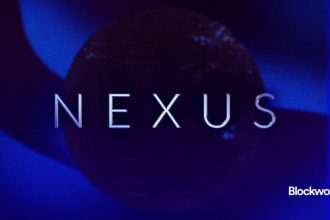Blockchain Privacy Challenges: Aztec Network Offering a Potential Solution
Privacy on the blockchain remains an appealing concept but is notoriously difficult to achieve effectively.
Bridging solutions like Railgun on Ethereum exists but carries substantial computational costs. Meanwhile, privacy-focused chains such as Monero provide robust anonymity but fall short on smart-contract capabilities.
The long-sought dream—a blockchain supporting opt-in privacy, native smart-contract programmability, decentralization, and seamless integration with the Ethereum Virtual Machine (EVM)—may be coming closer.
Aztec Network could be particularly well-positioned to deliver this vision.
Aztec Network’s Public Testnet Launch
Aztec Network, a zero-knowledge (zk) rollup built on Ethereum (distinct from the recently sunset Aztec Connect), is launching its public testnet today.
Employing zero-knowledge cryptography, Aztec encrypts user balances and transaction details by default. This ensures recipient and sender anonymity, along with the content of the transaction itself.
Aztec’s Differentiation: Programmability and Privacy
Differentiating from most Layer-2 solutions, Aztec performs public transactions via its custom Aztec Virtual Machine (AVM) but processes private transactions in a client-side environment called the Private eXecution Environment (PXE). PXE generates private proof and executes smart contracts.
Transaction proofs are aggregated for settlement on Ethereum.
Aztec aims to keep zk-proving costs manageable (thanks partly to its custom implementation of the PLONK proving system, co-invented by founder Williamson) and has developed the Noir programming language (inspired by Rust), allowing developers to integrate privacy features easily without cryptographic expertise.
“Developers can use Aztec to build decentralized applications with privacy features that seamlessly blend with Ethereum’s existing infrastructure, and they won’t need to struggle implementing complex cryptography,” commented Aztec co-founder Zachary Williamson in a press release.
The Case for AZTEC’s zk-Rollup
Unlike common belief, most zk-rollups adopt zero-knowledge proofs primarily for transaction size compression (scaling) rather than true user privacy.
Aztec pioneers the use of zk proofs for end-to-end encryption of transaction metadata, concurrently enabling scaling benefits. Privacy remains optional on Aztec, aligning with its goal of adaptable privacy controls.
This capability is currently unavailable on Ethereum Layer 1 or privacy-centric Layer 1 chains like Monero (programmability limited to basic transactions) or Zcash (similar limitations).
“We currently view blockchain privacy as all or nothing, but it doesn’t have to be,” Williamson emphasized.
The testnet launch fosters immediate community participation and decentralized governance setup.












